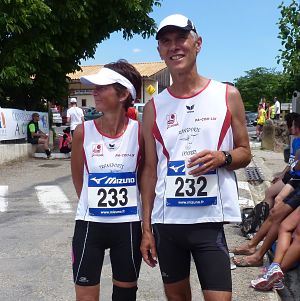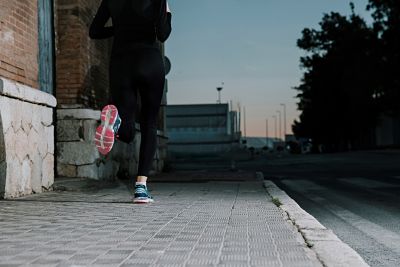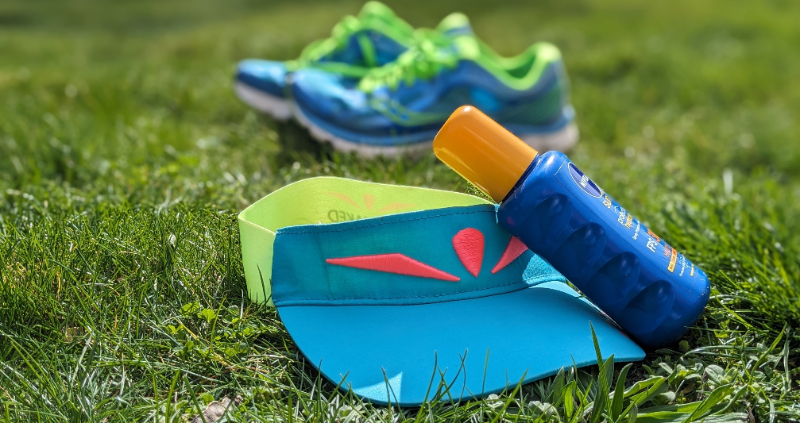Running in the Heat

For most people it is difficult to avoid running in the heat especially if you want to keep running outside all year round. I don't have an indoor running machine so that is not an option for me. Instead I have learned to be prepared and ready to deal with the hot weather.
Our Body's Response to Running in the Heat
We all know that when we get hot, we tend to sweat. Sweating is our body's way of cooling down.
The more we sweat, the more we are losing fluids. If you don't replenish those fluids you'll get dehydrated and this will make you feel dizzy and sap your energy. How much fluid do you need?
Also when your body core starts to heat, blood is diverted away from your internal organs and moves towards your skin to help you cool - hence the flushed look. Less blood to your muscles and organs means less oxygen and therefore you are going to slow down.
After your run, your body is preoccupied with cooling down so less energy is being used to repair and rejuvenate your tired muscles. This means that your recovery time is going to be longer.
So basically, running in the heat is harder on your body than in milder climates. It is normal to find your run feels harder and that you are lacking in energy and that you feel a bit more exhausted after it than usual.
So don't push yourself over the limit and accept that your run is going to be slower and that you may need a bit of extra recovery time.
Running in the Heat - How to Deal with It
Dress cool
Your head is going to feel it the most if it is a bright sunny day. My husband wears a cap but I find I overheat in them so tend to wear either a sports sun visor or a bandana to stop sweat stinging my eyes.
Sweaty damp skin is more likely to get irritated from rubbing bra straps and waist bands. If you suffer from this then apply something like Body Glide.
Put on sun lotion anywhere that is exposed. Don't forget bald heads and ears. Find out if runners are more at risk of getting skin cancer.
Pick the coolest time and route
Obviously the early morning is the coolest but that time doesn't suit everyone. Basically try not to run at midday as that will be pretty gruesome on your body.
When it is the height of summer in France, it can be pretty hot and uncomfortable to run in. We tend to try and pick trails rather than roads as there are usually more trees and shade. We also aim somewhere where we know there will be a water stop. This is usually a graveyard!
Lower your pace
Run slower than in cooler weather. Even better is to go by feel. If you are feeling dizzy or panting, you are definitely overdoing it.
Re-hydrate DURING your run
Keep your body fluid levels up when running in the heat but don't overdo it as it could lead to a serious condition known as hyponatremia.
Take water with you on your run either in a water belt, camel back or hand held bottle. Sip it regularly like every 15 minutes rather than gulping a whole bottle at once as it will pass through your stomach much easier.
I like to drink water but others take sports drinks. Bear in mind that the higher the carbohydrate/sugar content of the drink, the slower it will be absorbed. If you do like sports drinks, then try diluting them.
If it is very hot, I also take Saltstick tablets which contain electrolyte salts and help stop me getting cramps.
Sweat rates vary from person to person and some will sweat out up to 4 litres per hour.
How to calculate how much you sweat:
- Weigh yourself naked
- Run for an hour
- Weigh yourself naked after your run
- Subtract your post-run weight from your pre-run weight plus subtract the amount of fluid you drank.
- The result will be how much you sweated in an hour.
Re-hydrate AFTER your run
When you get home, drink some more. Again don't glug a whole liter of water all at once but have a glass every half hour or so. Once your urine is a pale straw color, then you know you are properly hydrated. How much fluid should you drink?



